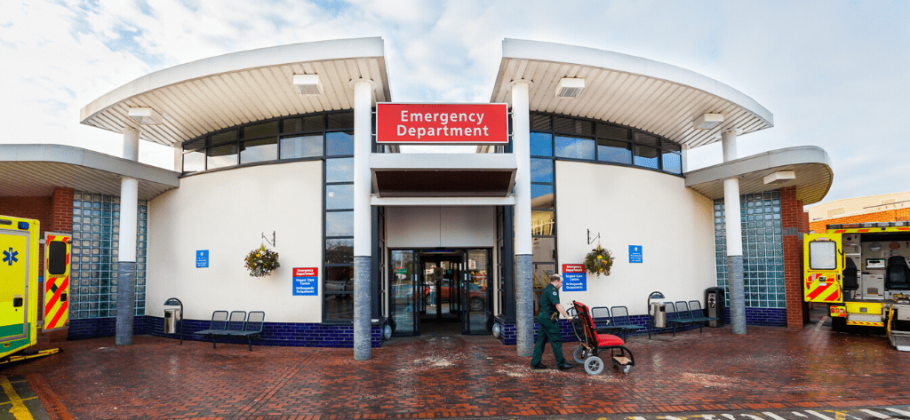NHS Vale of York CCG rolls out evidence-based intervention technology to help reduce unplanned hospital care as nationally emergency care admissions reach 10-year high.
An innovative AI-based nursing service from health technology company, Health Navigator, has been introduced across Vale of York to identify patients at risk of unplanned care attendances and admissions and coach them back to better health, helping to improve quality of life and reduce emergency admissions.
The pioneering project, commissioned by NHS Vale of York CCG, tackles the NHS’ ever-increasing demand for urgent and emergency care services, as highlighted in figures released by NHS Digital recently which showed that emergency admissions have peaked nationally, increasing 28 percent over the last ten years.
Health Navigator is the first service of its kind in the UK to use cutting-edge, real-time AI and predictive data analytics to identify patients, often those with long-term conditions and who are potentially regular users of health services, who may benefit from health coaching.
Those patients from York Teaching Hospitals NHS Trust, a key partner in this initiative, are offered a referral to Health Navigator’s ‘Proactive Health Coaching’ service.
Delivered by registered nurses and healthcare professionals, the service is designed to support patients with complex conditions and empower them to take control of their health.
Evidence from a local Randomised Control Trial (RCT) showed a 36% reduction in A&E attendances for those patients supported by health coaching compared to patients that had not received the intervention.
The trial also demonstrated a 30% reduction in unplanned hospital admissions and some 25% lower planned admissions for the same Vale of York CCG patients. Patient activation, a key metric for a patient’s ability to take control of their own health and healthcare, improved by more than 30%.
A wider RCT – the UK’s largest for AI-powered unplanned admission prevention – includes a total of seven NHS acute sites working with Health Navigator. Interim results from other sites are similar, in cases demonstrating up to 59% reduction in unplanned admissions for patients receiving the intervention. Results are currently being evaluated and shall be published with the NHS and the Nuffield Trust.
Chris Sherlaw Johnson, senior research analyst, at the Nuffield Trust, said: “RCTs are the golden standard for evidence generation in healthcare, the approach adopted for drug safety and efficiency evaluation, yet RCT-level evidence for innovative digital health interventions remains globally scarce.”
On the strength of the local results, NHS Vale of York CCG has already expanded the contract to 1,800 patients.
Fiona Bell, Lead Officer for Primary Care, NHS Vale of York CCG, said: “High emergency admissions are a system problem, not just the responsibility of secondary care. A lot of people go to A&E if they are feeling anxious about their health or they need reassurance. We needed to find a way to support these patients to help them understand their conditions better, make life changes which will improve their health and know which services to access when they need support.
“From the local RCT, we found that 55% of patients felt much more engaged with their care, whilst 84% of people reported an improved quality of life and having more confidence in managing their conditions. These results are really impressive and have a huge impact on patients’ everyday lives.”
David Friend, who was diagnosed with Parkinson’s disease and then suffered from Cellulitis and Tendonitis, said: “Last year I wasn’t too well. I was referred to the Health Navigator service and I had one person coordinating the various things that I was suffering from and defining a course of action. I have since been in better health and better spirits. It is a good service and it would be well worth it for many people in society.”
With 25-35% of urgent and emergency care being deemed avoidable and costing the NHS £6bn annually, the project, through the RCT, has demonstrated that improvements in the patient experience can lead to reduced demand for healthcare services.
Bell added: “If we can replicate the results from the RCT trial on a larger scale then we are confident that we will have a significant and positive impact on reducing growth in A&E attendances and non-elective admissions. Most importantly, we will help to support patients who receive this service to understand and manage their long-term conditions better which we’ve already seen can have a very positive impact on their quality of life.”
There are already plans for Vale of York to become the first CCG to extend this type of service into primary care to alleviate the increasing demand for GP appointments, which Bell describes as a “really exciting next step for us”.
Joachim Werr, Health Navigator CEO, said: “We know that 1% of the UK population accounts for 50% of non-elective bed days, so there is huge potential for new models of care such as this, based on scientific and real-world evidence of patient benefit, to reduce avoidable admissions and improve system performance.
“Vale of York has invested in a service that, most importantly, supports patients to lead healthier lives, but also has the potential for major service transformation and improvement” concluded Werr.













